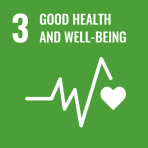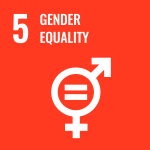Transforming gender relations in an ageing Africa
How can we work towards ensuring that women and men in Africa can flourish in older age? At present, 46 million older people live in sub-Saharan Africa. This is due to triple to 165 million by 2050.
Led by Professor Ann Stewart, a collaborative project was undertaken with Dr Agnes Meroka from the University of Nairobi's Law School Nairobi, Dr David Otieno Ngira from the Law Faculty at Mount Kenya University, and HelpAge International (HAI). It brought together policy makers, civil society representatives and academics from three African countries along with regional representatives from the United Nations and the African Union to discuss the needs and rights of older people, helping to ensure that the voices of older African citizens are fully represented in the design, monitoring and evaluation of the project.
The rights of older people
“There is little or no study of age discrimination and protection against abuse in Kenya, Ethiopia and Malawi. As yet there is very little legal or social work education and training which focuses on the rights and needs of older women and men" explains Professor Stewart.
Although Africa is the youngest continent, the African Union has started to tackle the issues of ageing.
It has adopted a legal protocol which addresses older people's rights and developed policies on long-term care provision.
Several countries have now adopted ageing policies or anti-discrimination legislation.
But does this really go far enough? Not according to Professor Stewart: “There is a gap between these regional and country specific initiatives and what happens in practice. There is very little research evidence available to policy makers” she explains.

Little social work education exists on older people's rights
Leaving no-one behind
The 2030 Agenda for Sustainable Development envisages a world in which ‘no-one is left behind’, with the rights and needs of older people included in the majority of the UN’s goals. Professor Stewart’s project was designed to contribute to age- and gender-sensitive human rights culture in the legal profession, the justice system, national human rights bodies, civil society organisations and gender advocacy groups. The findings are helping contribute to policy development, with outcomes of the research fed directly into national, regional and local policy making.
“Africa is ageing rapidly” says Professor Stewart. “Older people across the world face ageism. Disabled older people also face many difficulties. Whilst there is an emerging regional policy framework on the rights of older people, and a more established women’s rights framework, the challenge is to build on and extend existing partnerships to help deliver policies and practices that are gender inclusive, and produce research evidence to support gender and age inclusive legal and policy, frameworks and guidelines.”
Uniting policy makers

The workshop in Nairobi in summer 2019
A workshop was conducted in Nairobi in June 2019 which brought together local, regional and national policy makers with mandates relating to gender, ageing, social protection and care provision, academics, NGOs with expertise in gender/women’s rights, older peoples’ rights, and disability rights, employer and workers organisations from Kenya, Ethopia and Malawi.
During the workshop, a Phase 2 project was designed, based on initial research findings. The Phase 2 project will ensure that the UN Sustainable Development Goal objective of ‘leaving no one behind', and is informed by a gendered and rights-based life course approach to ageing.
Ensuring the voices of older people are heard
The project was co-designed with partners in Africa, as an understanding of local contexts and conditions is crucial in order for new policies to be implemented. "Dr Meroka, Dr Ngira (both of whom are experts in local African rights, gender and law), Roseline Kihumba from HelpAge International (who specialises in human rights and ageing) and I provided policy recommendation briefs," explains Professor Stewart.
"These briefs also included input from participants from government, civil society, and of course, older people themselves. In this way we are helping to pave the way for new age and care related policies" she continues. "It is so important that the voices of older people are heard, and that they are fully included in policies."

The HelpAge International team, who worked with Professor Stewart and Nairobi University Law Faculty on the project
In conjunction with the Government of Ethiopia, African Union, United National Economic Commission for Africa (UN ECA), HelpAge International is planning an African continent-wide conference (scheduled for May 2020), entitled ‘Preparing for an Ageing Africa’. This can be, in part, attributed to the success of the workshop. The conference will involve more than 200 participants from at least 30 African governments, UN organisations, civil society, academia, international bodies and business sector, who will to contribute a life course approach to gender and ageing. This should help influence policy development, as well as build support for future research funding.
Over time, it is anticipated that the project's outcomes will deliver impactful change and progress within regional bodies such as the African Union (and its member states) and organisations such as International Association of Gerontology and Geriatrics, and benefit older people in Africa for many years to come.
The project links to the United Nations Sustainable Development Goals of Good Health and Well-Being, Gender Equality and Reduced Inequalities.
Principal Investigator: Professor Ann Stewart
Country: Kenya, Ethiopia and Malawi
UN Sustainable Development Goal(s) addressed:



